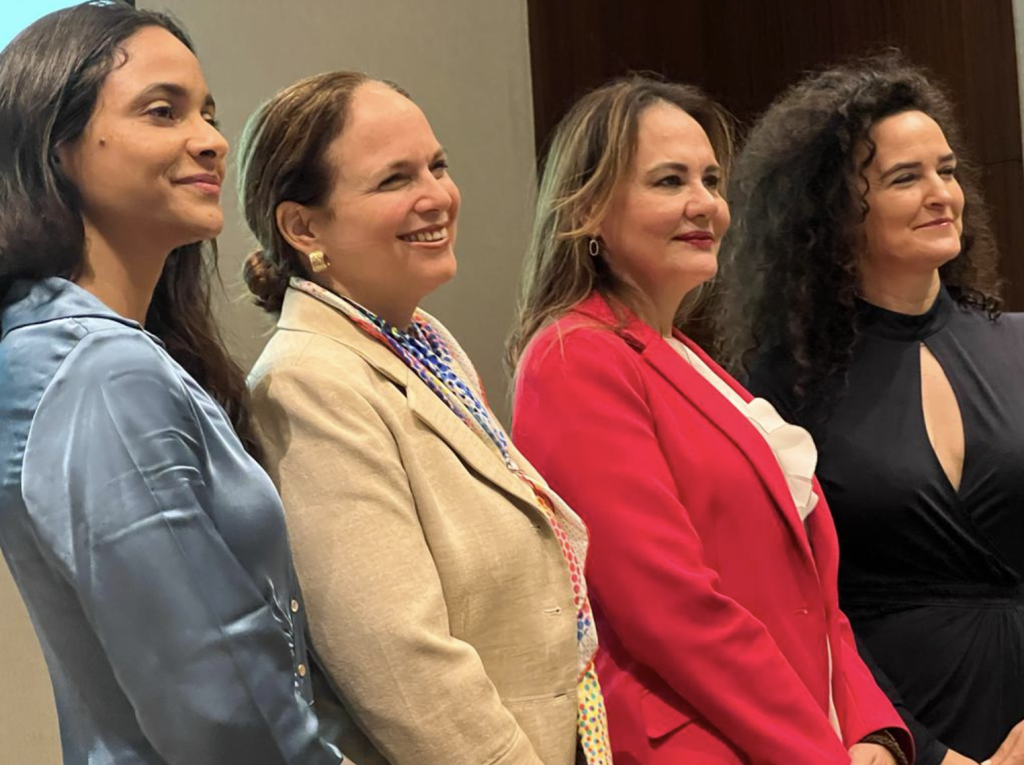
The Dominican Republic has not been able to convince governments or multilateral organizations to get active in Haiti to help that country resolve its multidimensional crisis. But the country could probably look outside the box and redirect efforts for help to shoulder the increasing fiscal burden it carries due to the multidimensional crisis in Haiti.
Mafalda Duarte, CEO of the Climate Investment Funds for the World Bank, told DR1 at the “Economic Growth with a Woman’s Face” breakfast on 22 November 2022, that the country could undergo an effort to be classified at the same status as Haiti to benefit from multilateral programs. The country could begin a campaign to create an awareness among multilateral organizations and governments abroad of the high fiscal burden it has been undertaking.
Duarte understands the DR should be given the same status as a fragile and conflict-affected country as Haiti in order to benefit from numerous low-cost programs multilateral organizations that are available and the Dominican Republic no longer has access to because of its upper middle-income status. The failed state in Haiti has not enabled that country to use most of these programs.
To make the case, Duarte understands the Dominican Republic needs to quantify through the Ministry of Education and Ministry of Public Health the high cost of public services that directly benefit undocumented Haitians that relocate to the country seeking the jobs and opportunities no longer available in Haiti.
Access to these programs would help to reduce maternal mortality that remains high in the Dominican Republic because of the high incidence of birthing tourism from Haiti. Women that travel to the DR to give birth are usually those that are experiencing difficult pregnancies. This results in high costs for the maternity hospitals in the country.
Interviewed during the talk organized by the World Bank to encourage journalists to focus on issues from the gender lens, Duarte said that the country could emulate what high income countries such as Barbados have already achieved in the Caribbean. These countries are targeted to receive concession funding in concessionary terms given that they do not cause climate change impacts but receive most of the brunt of the situation. Otherwise, these countries would be classified as high-income countries and not allowed to be recipient of these programs.
In her opinion, it is not far-fetched for the country to begin a campaign for the Dominican Republic to change its status from upper middle-income country to the same level of Haiti so the country could benefit vulnerable populations that include hundreds of thousands that have migrated here from Haiti.
In reality, Dominican taxpayers are picking up the tab for education of Haitians in public schools and birthing and medical care in public hospitals. The undocumented status of the Haitians makes it difficult to quantify these individuals for statistical persons, reflecting a major under registry and the distortions.
World Bank operations official, Carmen Amaro called the situation “a dichotomy” the Dominican Republic faces when addressing the contradictory situation during the breakfast.
The National Population and Housing Census is underway, but it is unlikely it will give a trustworthy number on how many undocumented persons live in the country. Given the illegality of most of this covert population, it is unlikely these people will come forward to share real data and be included in the census count.
Yet, the statistics of number of undocumented Haitians enrolled in public schools and number of undocumented Haitians and Haitian nationals treated at public hospitals can be compiled through the Ministry of Education and Ministry of Public Health.
The Dominican Republic could make a case to be included at the level of Haiti in the list of fragile and conflict-affected situations (FCS). This would help the country deal with the ever-increasing fiscal burden in the Dominican Republic resulting from the escalating multidimensional crisis in Haiti.
During the breakfast, Alexandria Valerio addressed the heavy impact the multinational crisis has had on the Dominican Republic.
Read more:
World Bank
World Bank
Diario Libre
23 November 2022

